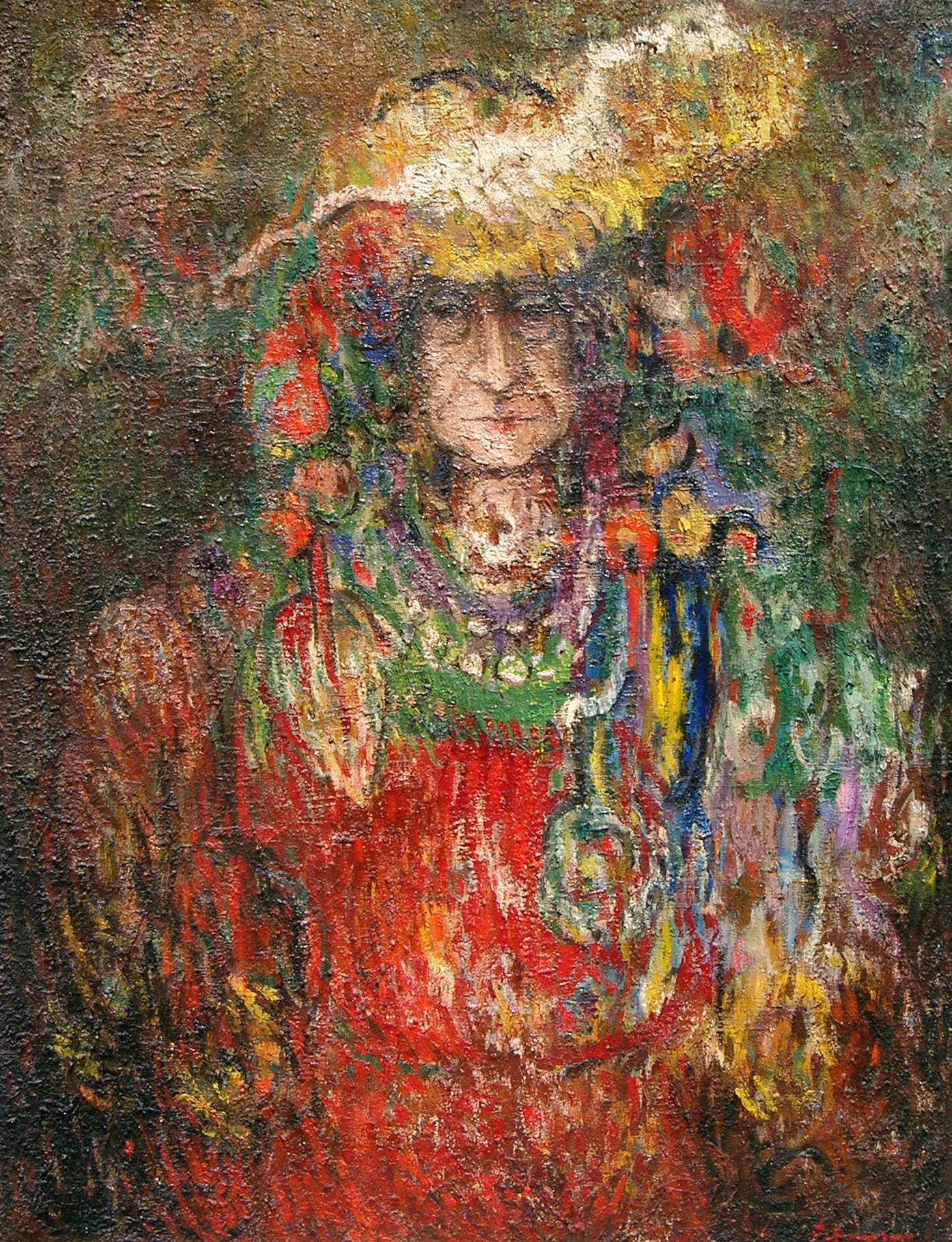|
Lucia Sturdza-Bulandra
Lucia Sturdza-Bulandra (25 August 1873 – 19 September 1961) was a Romanian actress and acting teacher. She is widely regarded as one of the most important figures in the history of Romanian theater. In addition to her acting career, she played an important role in shaping an entire generation of Romanian actors and directors, her students including the likes of George Calboreanu, Dina Cocea, Haig Acterian, Radu Beligan and Victor Rebengiuc. She is the namesake of the Bulandra Theatre in Bucharest. Early life She was born on 25 August 1873 in Iași, the daughter of Emil Sturdza and Magda (nee Diamandy). She was a descendant of the aristocratic Sturdza family, which held great political power in Moldavia and later Romania. She initially planned to pursue a career in education, but after graduating from the faculty of Letters and Philosophy of the University of Bucharest, she became interested in acting. She was forbidden from using her family name in the theater by her pater ... [...More Info...] [...Related Items...] OR: [Wikipedia] [Google] [Baidu] |
Madame Lucia Sturdza Bulandra In La Folle De Chaillot
Madame may refer to: * Madam, civility title or form of address for women, derived from the French * Madam (prostitution), a term for a woman who is engaged in the business of procuring prostitutes, usually the manager of a brothel * ''Madame'' (1961 film), a Spanish-Italian-French film * ''Madame'' (2017 film), a French comedy-drama film * Madame (singer) (born 2002), Italian singer and rapper * Madame, puppet made famous by entertainer Wayland Flowers ** Madame's Place, a 1982 sitcom starring Madame * Madame (clothing), an Indian clothing company Places * Île Madame, French island on the Atlantic coast * Palazzo Madama, seat of the Senate of the Italian Republic in Rome * Palazzo Madama, Turin, Italian palace See also * Madam (other) Madam is a respectful title for a woman (often "Ma'am" or "Madame"). Madam may also refer to: * Madam (prostitution), a term for a woman who is engaged in the business of procuring prostitutes, usually the manager of a brothel * MAD ... [...More Info...] [...Related Items...] OR: [Wikipedia] [Google] [Baidu] |
Aristizza Romanescu
Aristizza Romanescu (December 24, 1854, Craiova – June 4, 1918, Iași) was a Romanian stage actress, active 1872–1918.George Marcu (coord.), Dicţionarul personalităţilor feminine din România, Editura Meronia, București, 2009. Life In 1911 Grigore Brezeanu was making the first Romanian films to deal with fiction. He employed Romanescu as well as other leading actors like Constantin Nottara and Elvire Popesco Elvira Popescu (; in French, Elvire Popesco; 10 May 1894 – 11 December 1993) was a Romanian-French stage and film actress and theatre director. During the 1930s and 1940s, she starred in a number of French comedy films. Life and career .... The first two films were called "Fatal Love" and "Spin a Yarn". No copies are known of these films. References 1854 births 1918 deaths 19th-century Romanian actresses Romanian stage actresses {{stage-actor-stub ... [...More Info...] [...Related Items...] OR: [Wikipedia] [Google] [Baidu] |
19th-century Romanian Actresses
The 19th (nineteenth) century began on 1 January 1801 ( MDCCCI), and ended on 31 December 1900 ( MCM). The 19th century was the ninth century of the 2nd millennium. The 19th century was characterized by vast social upheaval. Slavery was abolished in much of Europe and the Americas. The First Industrial Revolution, though it began in the late 18th century, expanding beyond its British homeland for the first time during this century, particularly remaking the economies and societies of the Low Countries, the Rhineland, Northern Italy, and the Northeastern United States. A few decades later, the Second Industrial Revolution led to ever more massive urbanization and much higher levels of productivity, profit, and prosperity, a pattern that continued into the 20th century. The Islamic gunpowder empires fell into decline and European imperialism brought much of South Asia, Southeast Asia, and almost all of Africa under colonial rule. It was also marked by the collapse of the lar ... [...More Info...] [...Related Items...] OR: [Wikipedia] [Google] [Baidu] |

